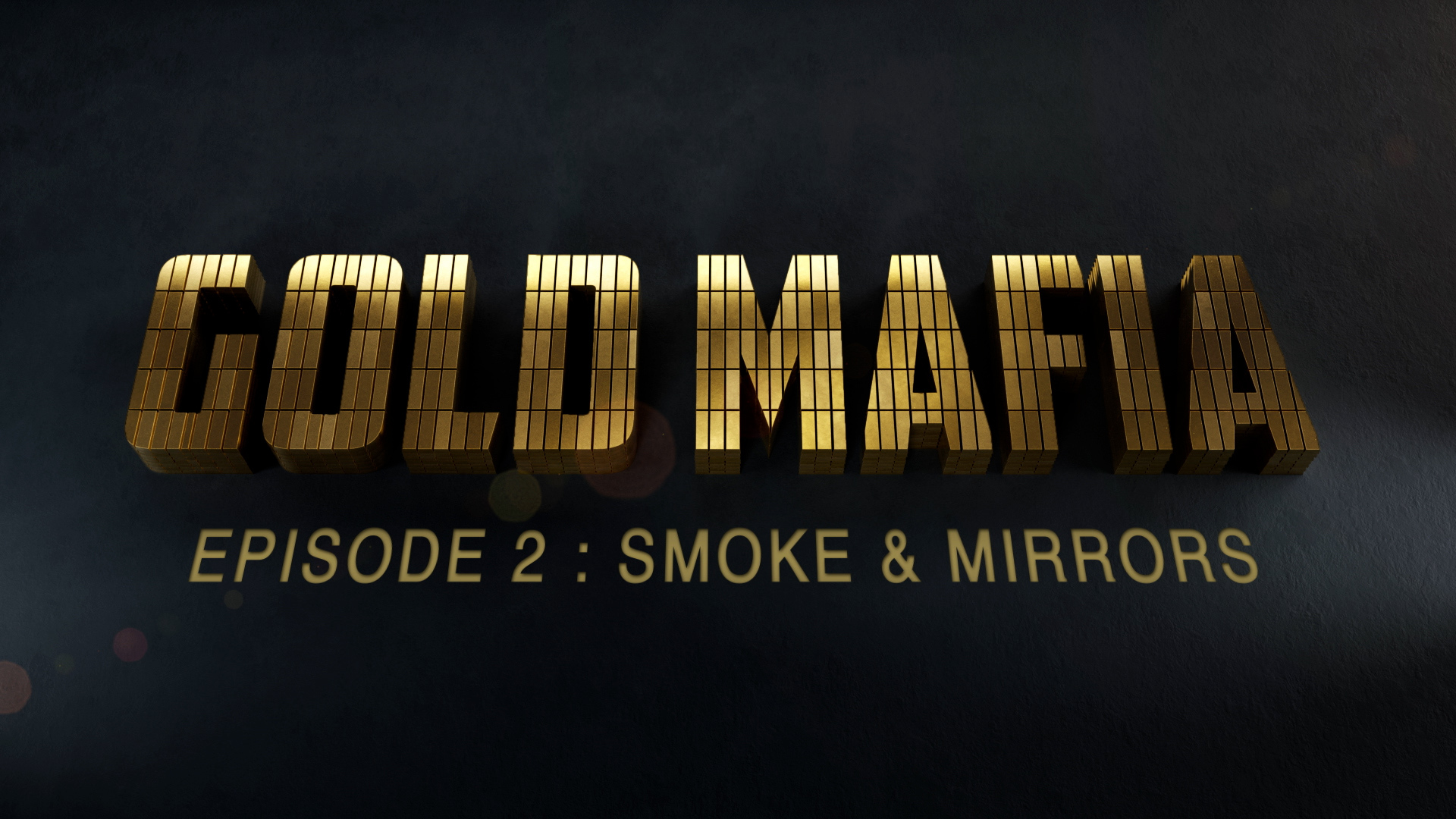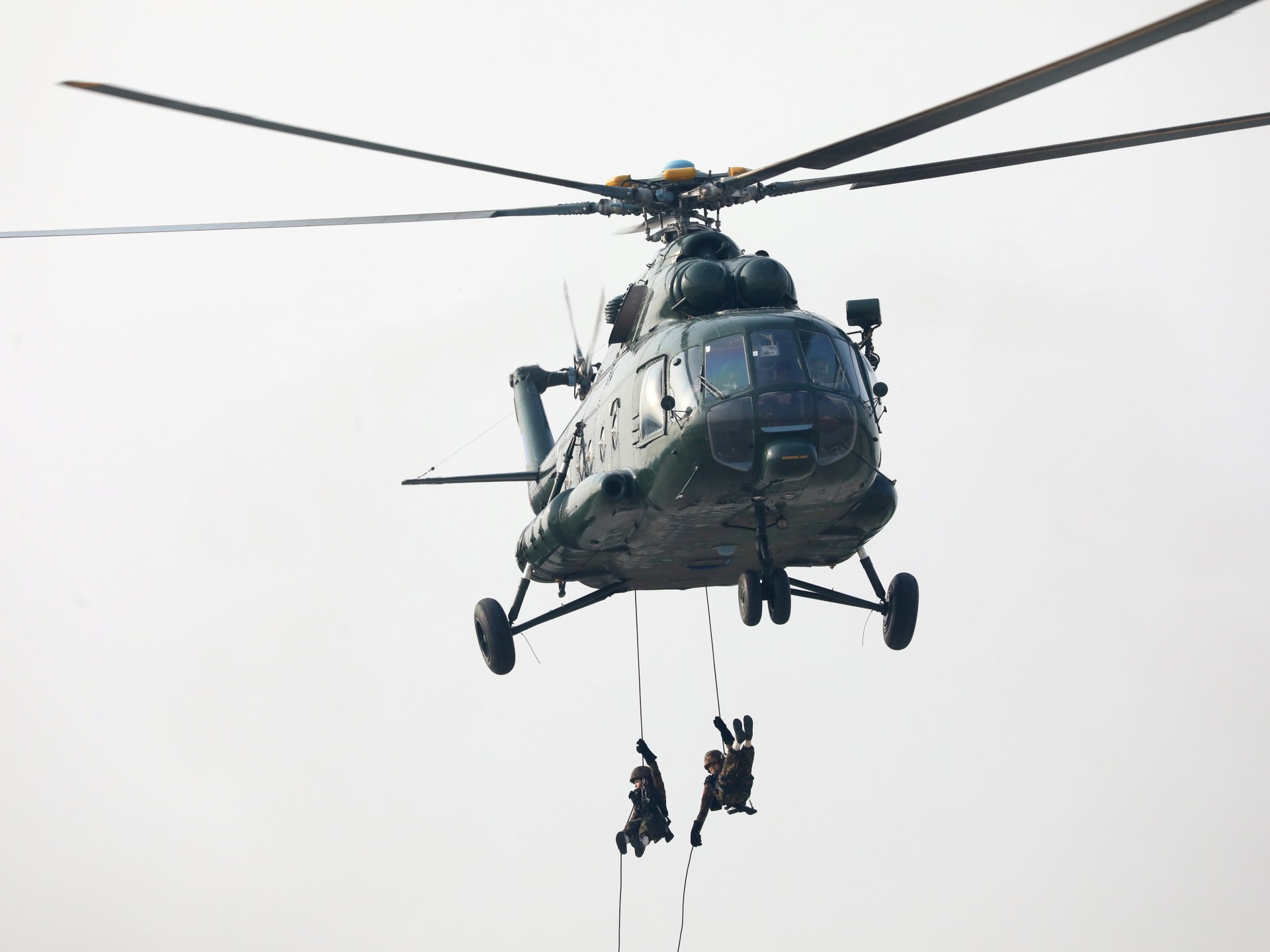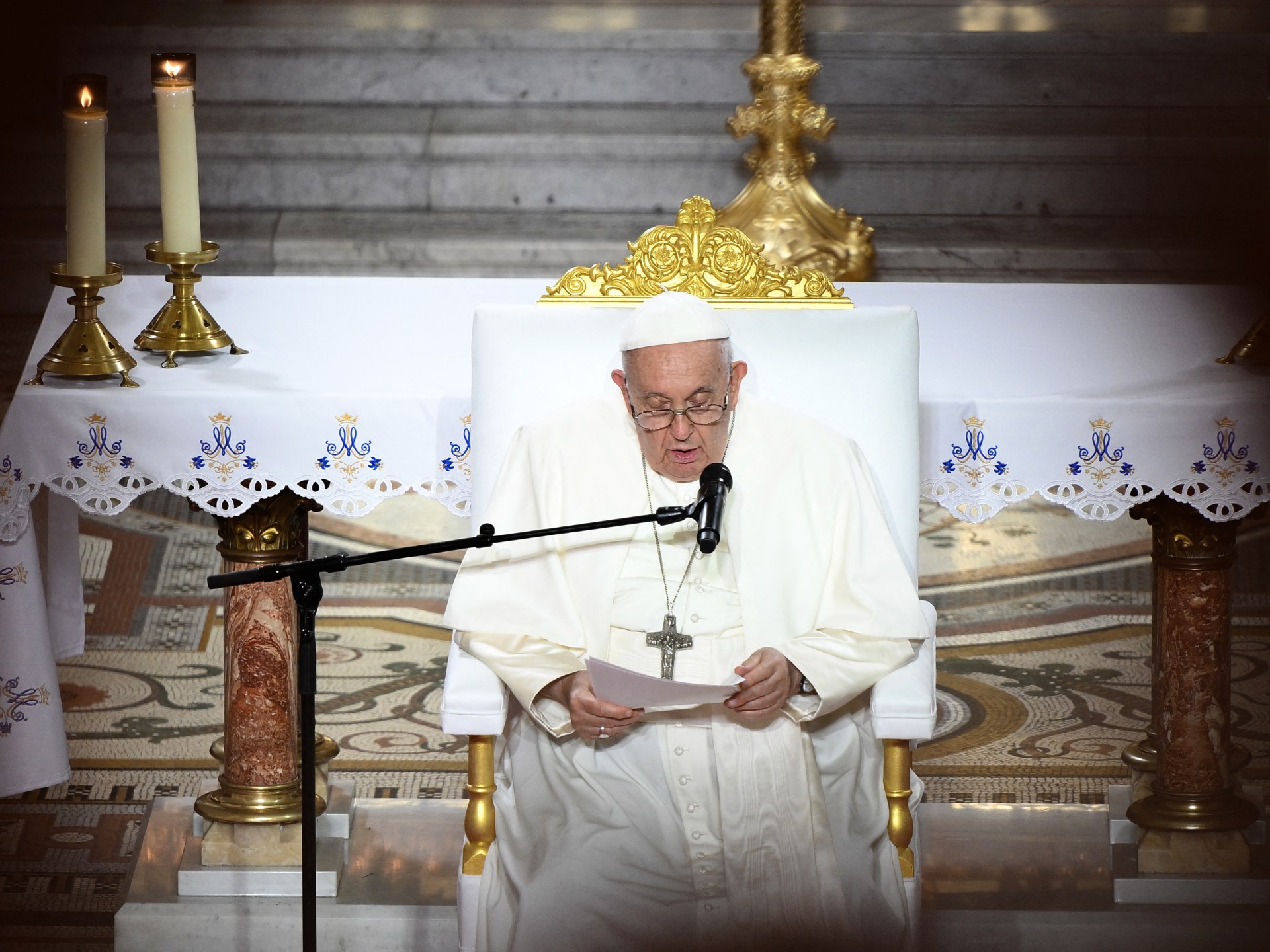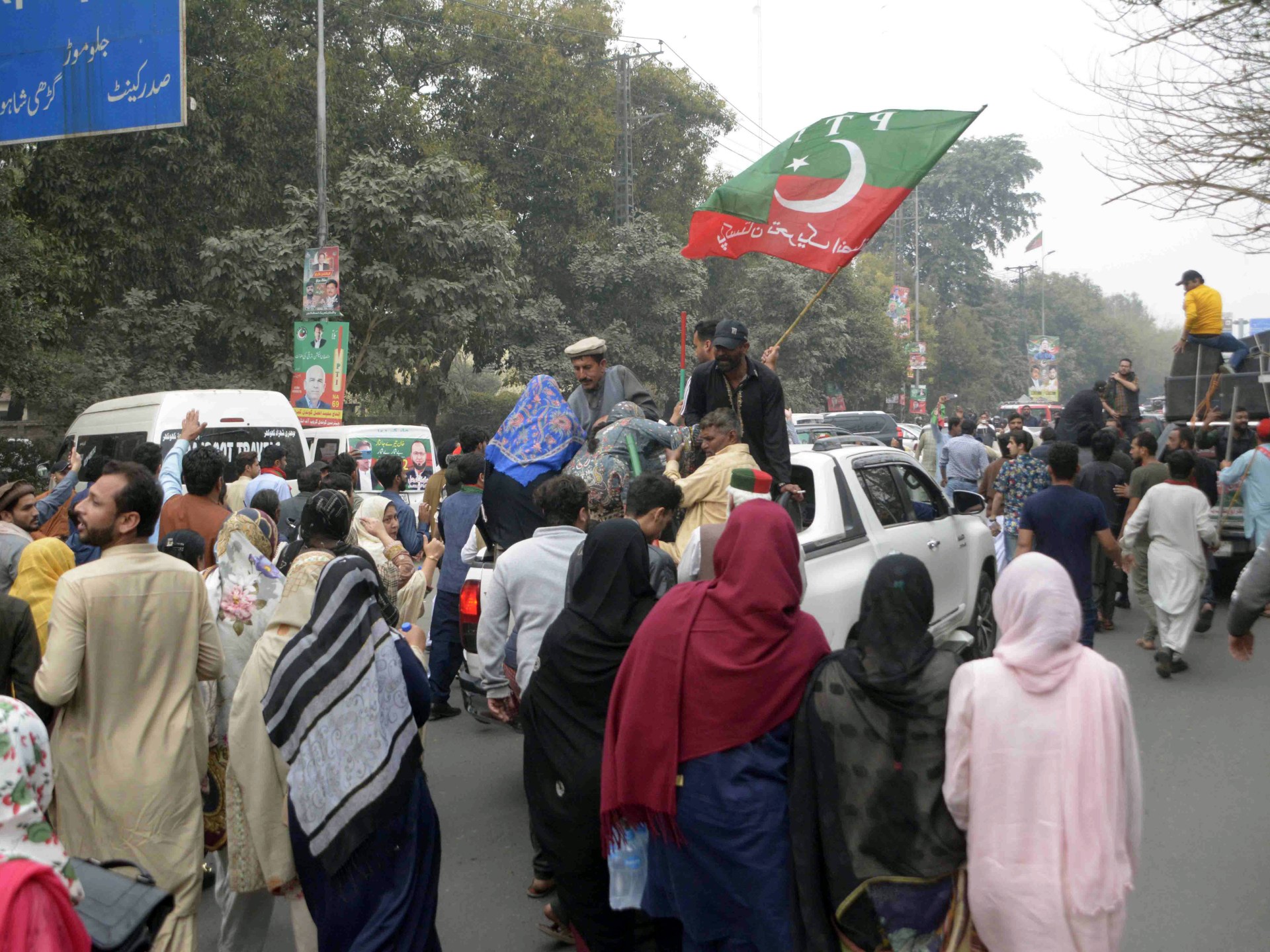How Zimbabwe uses gold smuggling to evade sanctions choke | Investigation News
Zimbabwe’s government is using smuggling gangs to sell gold worth hundreds of millions of dollars, skirting some of the consequences of tough Western sanctions imposed on the country over human rights abuses, Al Jazeera’s Investigative Unit (I-Unit) can reveal.
The smuggling feeds into an enormous money-laundering operation, all facilitated by Fidelity Gold Refinery, a subsidiary of Zimbabwe’s central bank, and enabled, in some cases, directly by senior government officials and relatives of the country’s president, Emmerson Mnangagwa.
Zimbabwe’s government needs United States dollars because the local currency has no value in international trade following sustained hyperinflation over many years. Gold – the country’s biggest export – is a good way to earn dollars.
But although gold trade itself is not barred, the additional scrutiny sanctions bring on Zimbabwean officials smother the government’s ability to transact directly in the international financial system, especially in dollars, said Karen Greenaway, a former US Federal Bureau of Investigation (FBI) agent who tracks illicit money flows.
“So you have to figure out other ways to do that,” she told Al Jazeera.
Meanwhile, global money launderers have undeclared cash they need to turn into legitimate money. Gold smugglers offer a way around these complications both for money launderers and the Zimbabwe government.
Smugglers, who do not face the sanctions government officials do, carry Zimbabwe’s gold to Dubai, where it is then sold in exchange for clean cash. This money is transferred to the bank accounts of the money launderers, who hand over an equivalent amount of their dollars to the Zimbabwe government, through the smugglers.
“Moving the money abroad and then washing it and then moving it back in. It’s a very common money laundering technique,” money laundering expert Paul Holden told Al Jazeera. “What I haven’t seen is the use of gold, which I think is quite interesting.”
This revelation is part of The Gold Mafia, a four-part series that reveals how rival gangs have taken over the gold trade in Southern Africa and how they launder hundreds of millions of dollars.
Al Jazeera’s reporters posed as Chinese criminals looking for a way to launder more than $100m. Several gangs with high-ranking connections in Zimbabwe’s government all offered ways to launder the money using smuggled gold.
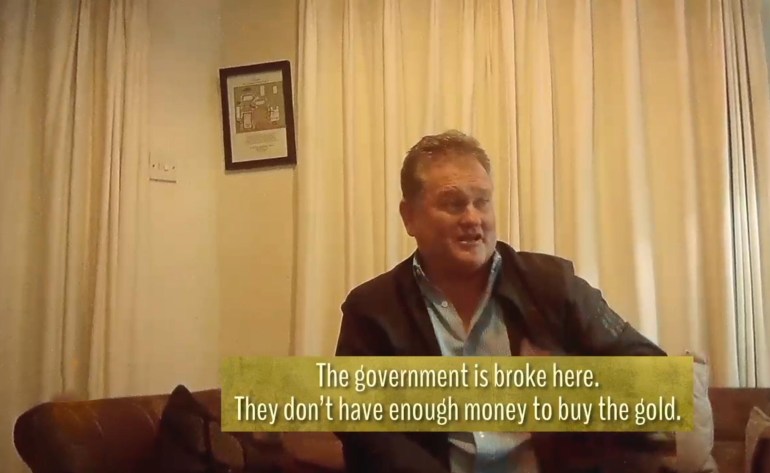
The smugglers
Al Jazeera’s I-Unit infiltrated multiple smuggling gangs during the course of the investigation. The most prominent among them involved Ewan Macmillan, who has been in jail several times; Kamlesh Pattni, a smuggler accused of nearly bankrupting Kenya’s economy in the 1990s; and Simon Rudland, a millionaire cigarette entrepreneur.
Under Zimbabwean law, only the country’s central bank can buy gold from miners. But it often does not have enough money to pay the nation’s miners, so it contracts smuggling gangs to buy gold on its behalf.
“When a person comes to sell me gold, I don’t have to write his name down, I don’t have to do anything,” said Macmillan, while offering his services to the Al Jazeera reporters. “I just take his gold, pay him, he leaves. I deliver to the government. Government asks me no questions.”
Pattni has a similar deal with the Reserve Bank of Zimbabwe, documents accessed by Al Jazeera show.
The central bank, in turn, has issued licenses to these smugglers to carry millions of dollars worth of gold out of the country, the documents reveal.
“This country has sanctions. So the country can’t sell the gold. So an individual can sell it, because he doesn’t have sanctions,” Macmillan said.
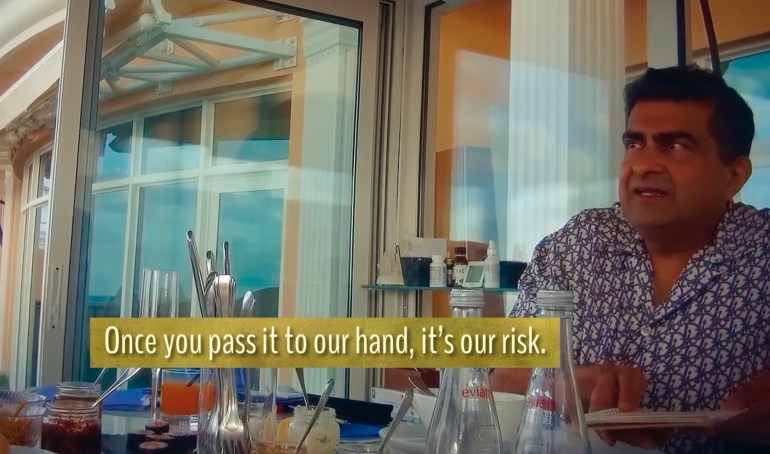
Cleaning gold and money
Using a group of couriers, the gold is then smuggled to Dubai in hand luggage and suitcases, where it is refined and marked with a Dubai stamp, removing any trace of its troubled origins and making it easier to sell on international markets.
“It’s smuggling, that’s what it is,” Macmillan smilingly acknowledged.
Documents show that Pattni and Macmillan are then authorised to bring cash, ostensibly from the sale of the gold, back into Zimbabwe. One document, for instance, shows that a Pattni company can carry $3mn cash per week into Zimbabwe.
“We have our own license, clearing at the Dubai airport. We have permission of the central bank of Dubai. We have permission from the Reserve Bank [of Zimbabwe],” Pattni told the undercover Al Jazeera reporters.
This process allows these smugglers to also clean dirty cash – for others, and themselves.
Rudland, an acquaintance of Macmillan, owns Gold Leaf Tobacco, one of Southern Africa’s largest cigarette companies. South African revenue authorities have accused Rudland of evading taxes by selling cigarettes on the black market.
Al Jazeera’s investigation uncovered a complex web of front companies and fake identities that helps Rudland move hundreds of millions of dollars of cash across borders, for non-existent imports. Some of these companies help him export Zimbabwean gold, while others buy that very same gold from Rudland’s couriers in Dubai.
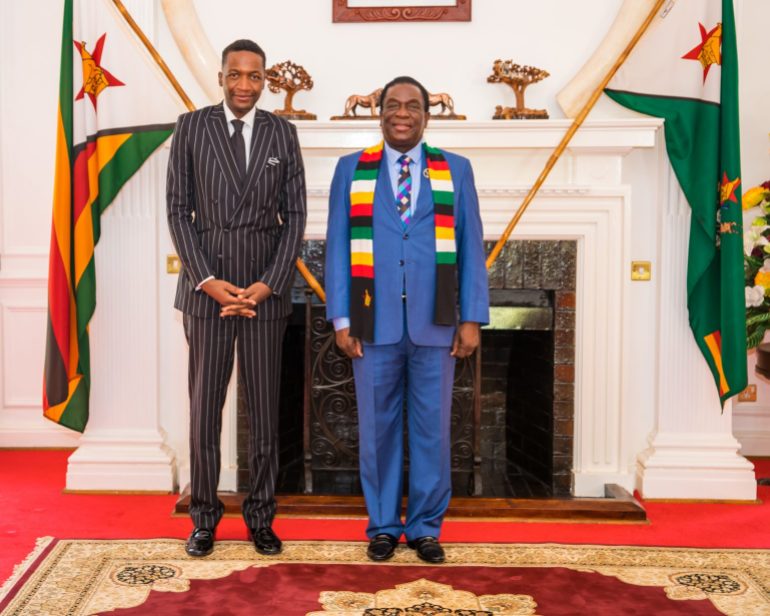
The president’s ‘diplomat’
Al Jazeera’s team also uncovered a different, more direct route employed by senior representatives of President Mnangagwa to bring in dirty money in exchange for the country’s gold.
Uebert Angel, one of Zimbabwe’s highest-ranking diplomats, was appointed personally by Mnangagwa in 2021 as an ambassador-at-large and a presidential envoy, tasked with drawing in foreign investment.
Angel, who is also a pastor at his Good News Church, told Al Jazeera that he could use his diplomatic status to smuggle gold for cash with the help of Henrietta Rushwaya, a niece of Mnangagwa and the president of Zimbabwe’s mining association.
On a phone call, Rushwaya explained the scheme: Launderers park $10mn of dirty cash into the government’s gold refinery, Fidelity. Of that, $5mn would be held in reserve by Fidelity for the duration of the scam, with the rest being used every week to buy gold – which can then be sold in Dubai in return for clean money.
“You want gold, gold we can do it right now, we can make the call right now, and it’s done,” Angel told Al Jazeera’s reporters. “It will land in Zimbabwe. Zimbabwe can’t touch it too until I get to my house. So there can be a diplomatic plan.”
During the meetings, Angel and his deputy, British pastor and musical artist Rikki Doolan, repeatedly said everything they were doing had the approval of “number one”, referring to Mnangagwa.
Asked for a response to Al Jazeera’s investigation, Simon Rudland, the cigarette entrepreneur, told us that all allegations against him were false and formed part of a smear campaign against him by an unidentified third party. He described himself as “a strong businessman… competing against the greedy and the envious”. He denied any involvement in the sale of illicit cigarettes, in gold or other smuggling and in sanctions busting.
Gold Leaf Tobacco, his company, said that it emphatically denied any involvement, past or present, in money laundering, the trade in illegal gold or related matters.
The Reserve Bank of Zimbabwe told us that it takes the issues of money laundering and illicit trade very seriously and will not participate, directly or indirectly, in such activities.
Fidelity, its subsidiary, denied having any business relationship with Simon Rudland or giving gold exporting licenses or incentives to those we identified. It also denied all involvement in money laundering, smuggling and sanctions busting.
Fidelity denied having any business relationship with Simon Rudland or giving gold exporting licences or incentives to those we identified. It also denied all involvement in money laundering, smuggling and sanctions busting
Kamlesh Pattni, the smuggler, said no allegation of criminal wrongdoing had been upheld against him in Kenya. He denied involvement in any kind of money laundering or sanctions busting, as well as employing anyone to smuggle cash or offering to deal with funds he knew originated from illegal sources.
President Mnangagwa, Angel, Doolan, Macmillan and Rushwaya did not respond to Al Jazeera’s request to comment on the investigation’s findings.

